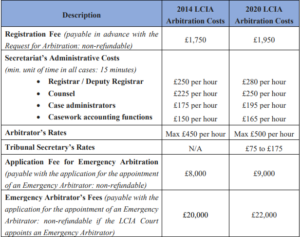Escalation clauses (or multi-tier dispute resolution clauses) are commonly found in commercial contracts. These clauses may spell out different preconditions and procedures when seeking to resolve disputes.[1] Typically, the parties are required to attempt, within a specific time period, an amicable settlement or to enter into negotiations in order to avoid arbitration or litigation. Sometimes […]
United Kingdom Arbitration
M&A Arbitration
In recent years, arbitration has become the preferred method of resolving M&A disputes. While the global market shows steady signs of recovery, arbitration is considered an effective means to resolve disputes involving M&A transactions in a wide range of sectors, such as the financial, healthcare, education, energy and technology sectors.[1] Disputes in M&A Transactions M&A […]
Demurrage Claims in International Arbitration
International arbitrations in the field of shipping and sales often include demurrage claims (“surestaries” in French) which constitute, using the expression of Professor Debattista, “the staple diet of shipping lawyers the world over”.[1] Although it is rarely defined in charterparties or sale contracts which usually provide for its rate only, the Baltic Code (2020) defines […]
Ambitious New 2020 LCIA Arbitration Rules, with an Increase in Costs
On 11 August 2020, the LCIA released a surprisingly ambitious update to its Arbitration Rules (the “2020 (LCIA Arbitration) Rules”) and a new Schedule of Arbitration Costs (the “2020 LCIA Schedule of Costs”), increasing the costs of LCIA Arbitration, among other notable changes. The 2020 LCIA Arbitration Rules and the 2020 LCIA Schedule of Costs […]
Does an Arbitration Clause Survive the Termination of a Contract?
An arbitration clause in a contract is generally regarded as an autonomous agreement that may survive the termination of the contract that contains it. This presumption is often referred as “separability” or the “doctrine of separability”, according to which an arbitration clause is a “separate contract” whose validity and existence are independent from the substantive […]
Arbitration in the United Kingdom: The 1996 Arbitration Act
Technically, there two different acts for the arbitration in the UK. The 1996 Arbitration Act, governing arbitration in England, Wales and Northern Ireland, and the Arbitration (Scotland) Act 2010, which came into force on 7 June 2010. Despite the uncertainties of Brexit, London remains one of the widely-used seats of international arbitration. English courts have […]
COVID-19, Force Majeure and Arbitration
It seems certain that businesses will be preoccupied by COVID-19, force majeure and arbitration (or litigation) over the coming year. The present ability of businesses to fulfill their contractual obligations has been significantly impacted by the rapid spread of the new coronavirus, so-called COVID-19, which was officially declared a pandemic by the World Health Organization […]
Arbitration Award Enforced in England Despite Evidence of Fraud
The New York Convention compels its 157 contracting Parties to enforce arbitration awards: “A New York Convention award may, by leave of the court, be enforced in the same manner as a judgment or order of the court to the same effect”. This enforcement requirement, found in Section 101 of the Arbitration Act 1996, is however […]
New English-Speaking Commercial Court in Paris
On 1 March, a new appeals court in Paris opened its chamber doors. Similar to courts in other EU cities,[1] this commercial court resolves international commercial disputes using English and common law practices. It also hears appeals from the lower commercial court[2] involving foreign businesses or foreign law. It also expects to ultimately oversee arbitration award enforcement […]








